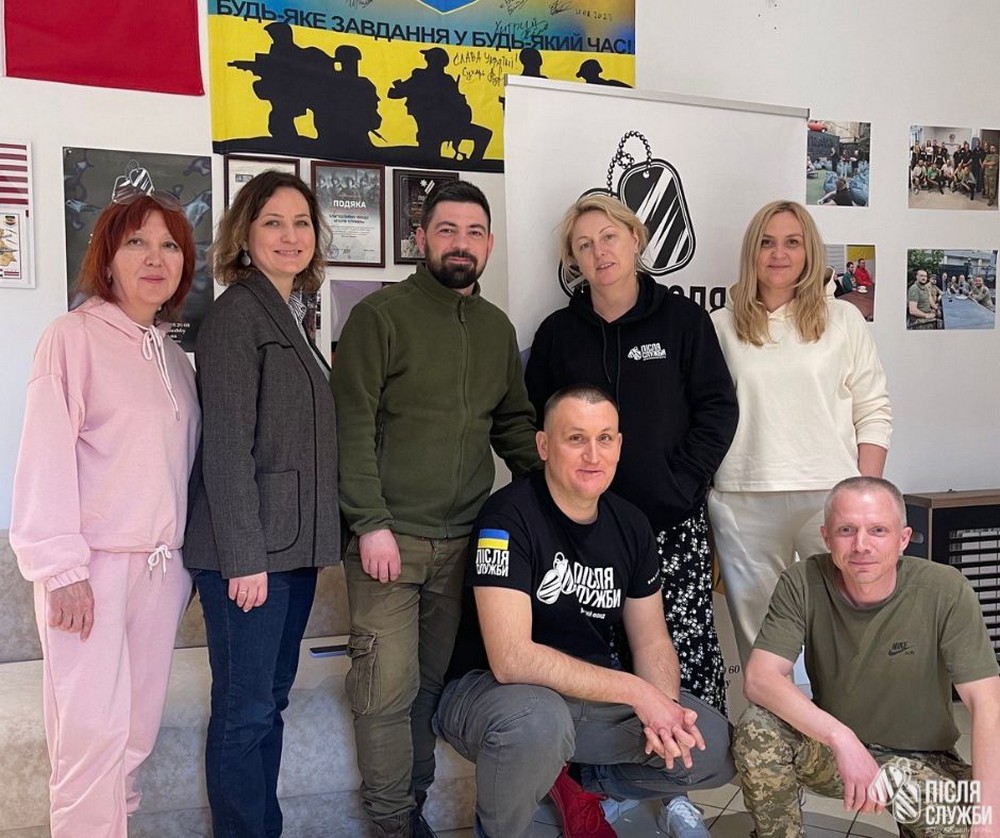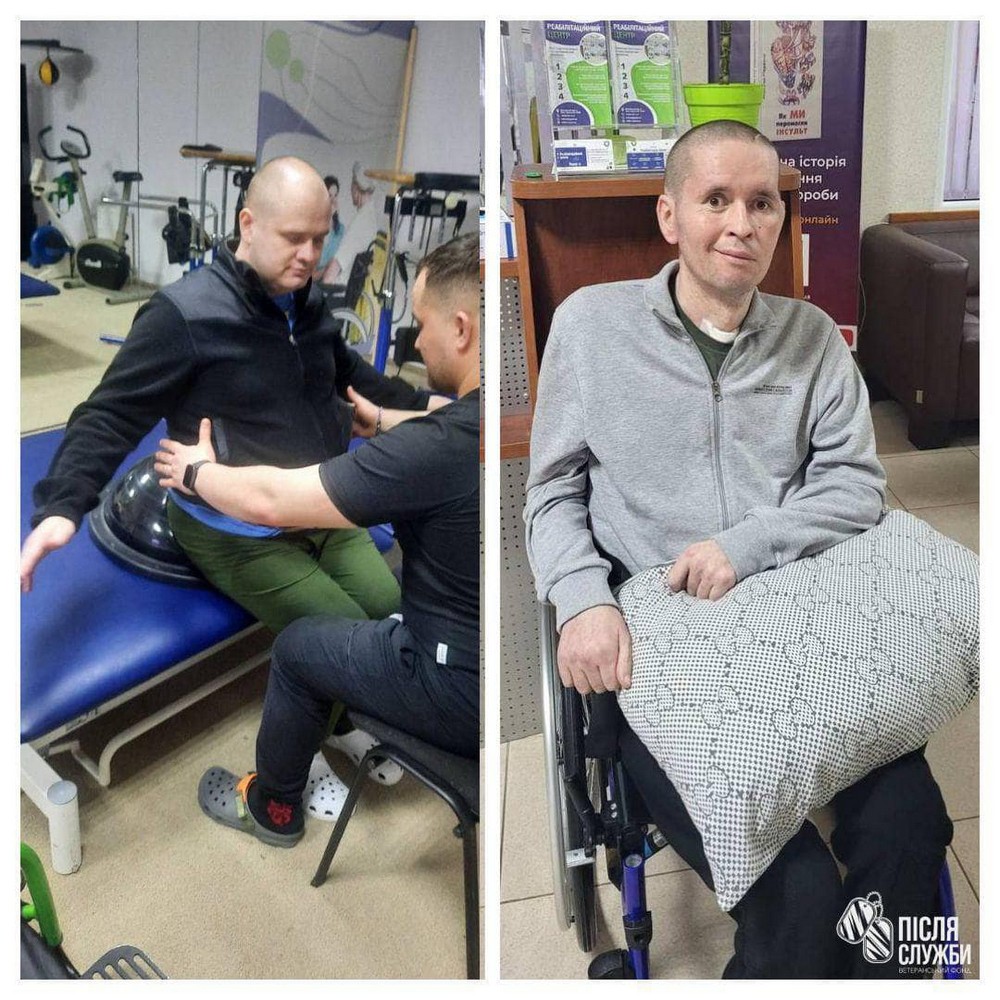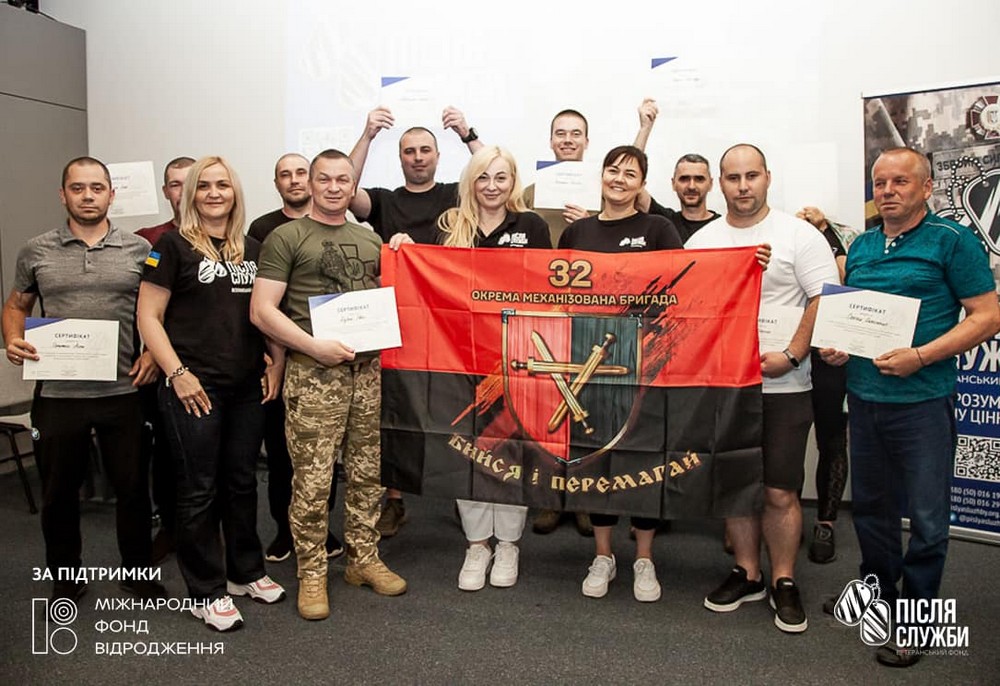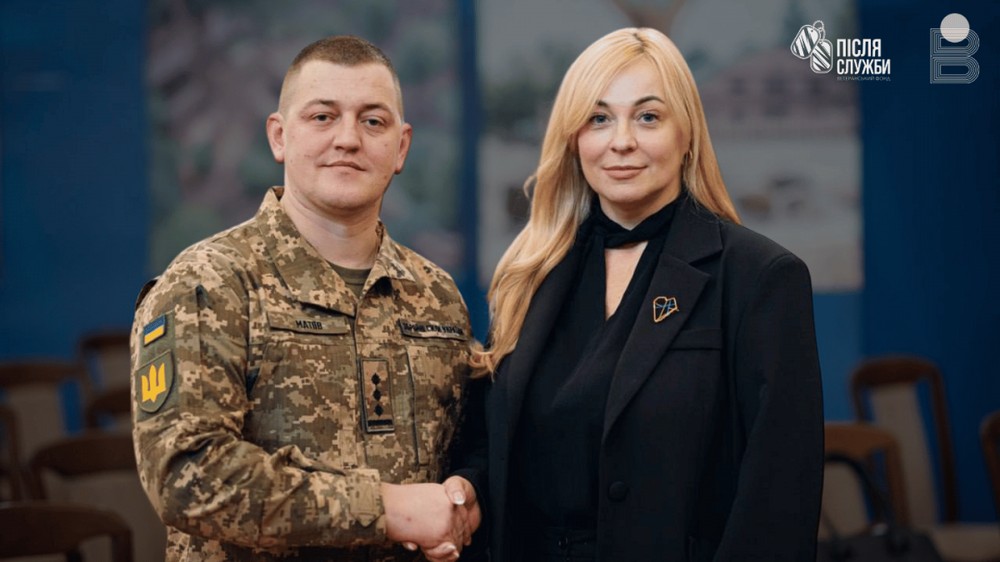Since the beginning of 2014, organizations and foundations have emerged in Ukraine that provide support to veterans of the Anti-Terrorist Operation in Eastern Ukraine. Since the start of the full-scale invasion, this number has doubled and will continue to grow. Therefore, the work of organizations supporting veterans of the Russo-Ukrainian war is a major necessity. One such organization is the charitable foundation “After Service,” which the “Veteran Media” team presents in this interview.
The “After Service” Charitable Foundation was established at the end of 2022 by Edward Marshall, an American veteran of Ukrainian descent who serves on the supervisory board of the American organization American Warriors Partnership. Previously, he was engaged in volunteering, but after the beginning of the full-scale invasion, he decided to create a foundation to support service members returning to civilian life.
The NGO “After Service” works for the benefit of Ukrainian soldiers and veterans of the Russo-Ukrainian war and operates in several key areas: legal aid, psychological support, medical rehabilitation, as well as employment, retraining, and education.

“We started out working as case managers, and in fact, we continue to serve soldiers and veterans who reach out to us with their requests. Mainly, this concerns legal assistance, psychological support, medical rehabilitation, education, retraining, and finding new jobs,” says project manager of the NGO “After Service,” Maryana Kovalenko.
The organization’s team includes specialists who lead specific areas. The process of providing services and support begins as soon as a request is received.
“We only work with those who reach out to us. We can’t chase after veterans and offer help, because this is a very sensitive audience. We can only help those who approach us. But again, relatives can also reach out to us. If we can help, of course, we take it on,” says Maryana Kovalenko.
Most of the issues veterans bring to the team are related to legal support, as there are many questions that need to be resolved. If a person has several requests, for example: applying for disability status due to war and prosthetics, everything is handled step by step.
“Depending on the request, our case manager contacts the person and tries to resolve the issue, to help. In many cases, we redirect to our partners. If it’s a simple legal consultation, for example, we direct them to free legal aid, psychological support, and so on,” she adds.
In cases requiring legal representation, the foundation can hire a lawyer to address the veteran’s problem.
“If it’s a case where an attorney is needed, for example to obtain some document from a unit or something similar, we hire lawyers. Then we fully accompany the case in court until it is resolved,” explains the manager.
When case managers redirect to partners, they continue to stay in touch with the soldier or veteran to make sure they received the necessary support they came for.

“We accompany them to the partners at first, but in any case we follow up to see what happens next in the veteran’s life, how much help was actually provided. Sometimes other needs arise. Often, for example, they first come to us for medical rehabilitation, and after six months or a year, once they’ve adjusted back to daily life, they need something else and contact us again,” notes Maryana.
In addition to providing various services and support, the NGO “After Service” implements projects aimed at addressing gaps in areas that concern veterans and service members. One such project is “Organizing Patronage Services in the Units of the Ukrainian Defense Forces,” within the framework of the veteran initiative support competition “Hold the Line” by the International Renaissance Foundation.
“We started this project in February this year. We realized that after a year of active work, we already have a large base of partners, developed response algorithms for requests, and the experience and expertise we’ve gained allows us to share this knowledge,” she explains.
According to Maryana, a veteran or service member needs support from the moment they join the service, starting with mobilization.
“As Oksana Kolyada said at the recent All-Ukrainian dialogue ‘Communities for Veterans’ in Vinnytsia, when a soldier is mobilized, we mobilize the whole family. We understand that right from the beginning, during the start of service, no one can provide better support than the units themselves. Within units, everyone knows each other, lives, works, and fights together. That’s why we started cooperating with different Armed Forces units to train social support specialists and psychologists within the units — to teach them what we do,” says Maryana.
The first trainings within this project were aimed at raising awareness among unit commanders about legal issues, medical matters, as well as prosthetics and psychological support — all of which are important for soldiers and their families.
The idea to implement this project came from requests by unit commanders asking to train their staff and provide a “roadmap” — what to do, in which cases, and where to turn for help.
To date, six trainings have been held within the project, with around 200 participants. According to the foundation, their goal is to hold more trainings and activities aimed at raising awareness both among unit commanders and civilians, in order to improve the transition process for service members leaving the military.
“On Thursday, June 13, we completed another training in cooperation with the International Renaissance Foundation. Thanks to it, we managed to train another 36 people from various Defense Forces units. These trainings are divided into blocks. The first block is support in case of injury, the second block is where to turn for help. We try to dedicate one full day to medical issues such as rehabilitation, prosthetics, and other health-related questions,” says Maryana.
Participants in the project “Organizing Patronage Services in the Units of the Ukrainian Defense Forces” had the opportunity to study the main blocks: medical, legal, and mandatory remembrance of the fallen.
“All the knowledge we and our speakers share with participants has the best effect after the training ends. Then it spreads like ‘word of mouth.’ A commander tells their soldiers, they tell their comrades from other units, and this makes it possible to know what to do and where to turn if something happens,” she adds.

Support for veterans and their families must exist at all levels — from government institutions to NGOs and foundations. Such work across different areas allows for a much smoother adaptation and reintegration process than without it.
You can request support from the “After Service” Charitable Foundation by filling out a form via this link.



 (1).jpg)
 (1).jpg)
 (1).jpg)
 (1).jpg)
 (1).jpg)
 (1).jpg)
 (1).jpg)